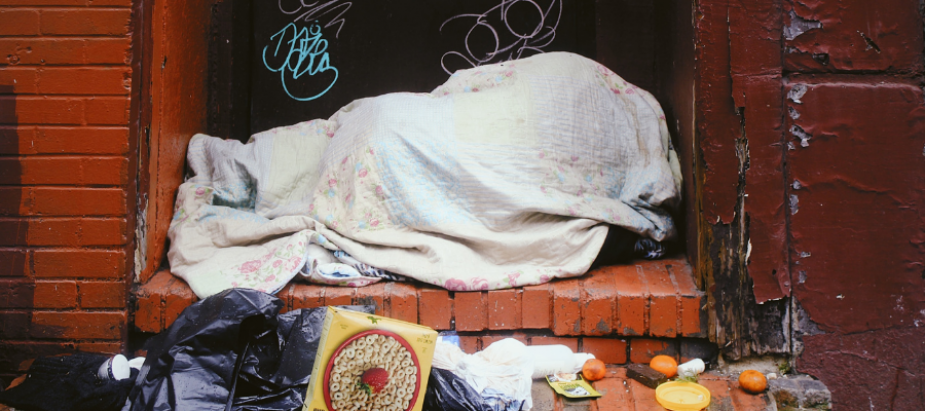Pray for the Hungry, but Feed Them, Also

And the crowds asked him, "What then shall we do?" And he answered them, "Whoever has two tunics is to share with him who has none, and whoever has food is to do likewise." — Luke 3:10-11 (ESV)
“Then the King will say to those on his right, ‘Come, you who are blessed by my Father, inherit the kingdom prepared for you from the foundation of the world. For I was hungry and you gave me food, I was thirsty and you gave me drink, I was a stranger and you welcomed me, I was naked and you clothed me, I was sick and you visited me, I was in prison and you came to me.’ Then the righteous will answer him, saying, ‘Lord, when did we see you hungry and feed you, or thirsty and give you drink? And when did we see you a stranger and welcome you, or naked and clothe you? And when did we see you sick or in prison and visit you?’ And the King will answer them, ‘Truly, I say to you, as you did it to one of the least of these my brothers, you did it to me.’ — Matthew 25:34-40 (ESV)
The NYC Department of Health estimates there are more than 26,000 restaurants across the city’s five boroughs, with nearly 11,000 located in Manhattan alone. Being reminded of the abundance of dining options in the city should also serve as a prompt for us to consider and remember those who face true hunger each day—the nearly 1.4 million New Yorkers who struggle with not knowing where their next meal will come from.
Christians are called to pray for those who are marginalized, to lift up our voices to God and cry out for the health and well-being of the citizens of this city. Of our neighbors. We know that God is faithful to His people forever, and part of that faithfulness, we are told in His Word, is providing for the hungry (Psalm 146:6-7; Isaiah 41:17-20).
The calling of the Christian is not only to pray for the hungry, though. As we clearly see in John the Baptist’s teaching in Luke 3 and Jesus’ description of the Final Judgement in Matthew 25, we are actually called to help meet our neighbors’ practical, physical needs as well.
As John the Baptist teaches to a crowd before the coming of the Messiah, he points to the ethical foundation of what it looks like to serve those in need. Likewise, days before he faces his crucifixion, Jesus Christ describes a similar idea: “As you did it to one of the least of these my brothers, you did it to me.” It is no small thing that within the teachings of both John the Baptist and Jesus Christ, we find the specific call to feed the hungry.
The notion of feeding those who are hungry was not just a message spoken by John the Baptist, and it wasn’t merely an illustration Jesus used to describe the final judgement—it was how Jesus envisioned living a life devoted to the glorifying of God.
Throughout Jesus’ life, he met the spiritual needs of those he encountered while also meeting their practical needs. In each of the Gospels, we are told of the story of Jesus encountering 5,000 hungry people and feeding them. Not long after that, in both Matthew and Mark, we’re once again told that Jesus met another 4,000 hungry people, and he fed them, too.
This example was not intended just for the life of Jesus, but for all who follow Him. Years after Jesus was crucified, James writes, "If a brother or sister is poorly clothed and lacking in daily food, and one of you says to them, 'Go in peace, be warmed and filled,' without giving them the things needed for the body, what good is that?” (James 2:15-16).
If our hearts have truly been changed by the unshakeable love and mercy of Jesus Christ, how could we not look at this beautiful city and do everything we can to help our neighbors find peace, warmth, and food?
* * *
Chuck Armstrong graduated from Reformed Theological Seminary and was a pastoral resident at Redeemer Lincoln Square. He's now the pastor of Hope Hell's Kitchen.
